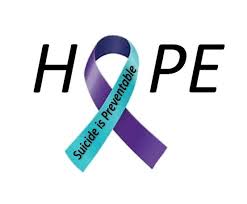Commonly Asked Questions After Receiving a Throat Cancer Diagnosis

After having been diagnosed with throat cancer, even with the most thorough of consultations, and even after several follow-up appointments to discuss treatments, you may well be still swimming in questions as to what all this means, what can be done, and what will happen next.
In an attempt to answer some of the more pertinent questions you are currently grappling with, continue reading to find the answers to some commonly asked questions after receiving a throat cancer diagnosis.

1. What Could Have Caused It?
Naturally, as the human body is a complex and multi-faceted organic machine, there are often a number of different causes for one illness or another. In the case of throat cancer, however, there are several stand-out risk factors that could be the root cause.
If you are smoke cigarettes or chew tobacco, the chemicals contained in both substances put you at a substantially higher risk of developing throat cancer, as does excessive drinking, lack of proper nutrients and proteins in the diet, HPV (Human Papillomavirus), poor oral hygiene, obesity and indeed, a genetic predisposition.
2. While in Remission, Could the Cancer Come Back?
Throughout your journey, your medical doctor and other professionals will ensure that you are not only fully versed in what will happen next, but also what to look out for regarding the symptoms of throat cancer in the future.
As you will probably already know, should an individual’s cancer be entirely eradicated, they will remain in remission for a certain period of time. If the cancer does come back, it is usually within this time period.
The main signs and symptoms of throat cancer are as follows:
- A hoarse and scratchy voice
- Persistent earache
- Swelling or lumps in your neck
- Difficulty swallowing
- Breathlessness
- Wheezing sounds as you breathe
- A persistent cough (wet or dry)
3. How is Throat Cancer Usually Treated?
After having been diagnosed with having throat cancer, your medical doctors will guide you through your individual treatment program, and as you might suspect, there are several factors that will mean one person’s treatment journey will entirely differ from the next.
The location of the cancer inside and around the throat will dictate the next steps, as will whether or not the cancer was caught early, as more advanced stages are often treated using a combination of chemotherapy, radiation therapy, and surgery.
Common surgery options in the treatment of throat cancer include the removal of part of the voice box or targeting and removing only the tumor itself.
4. What Are the Main Side Effects of Treatment?
From the side effects of anti-depressants to treatments for migraines and insomnia, even a temporary drug can cause different reactions in the body, and often, such side effects vary from person to person.
During the treatment itself, it is likely that your voice may change, and you could develop difficulties with chewing and swallowing, medical name dysphagia, which can be treated with food thickeners and even speech and language therapy.





